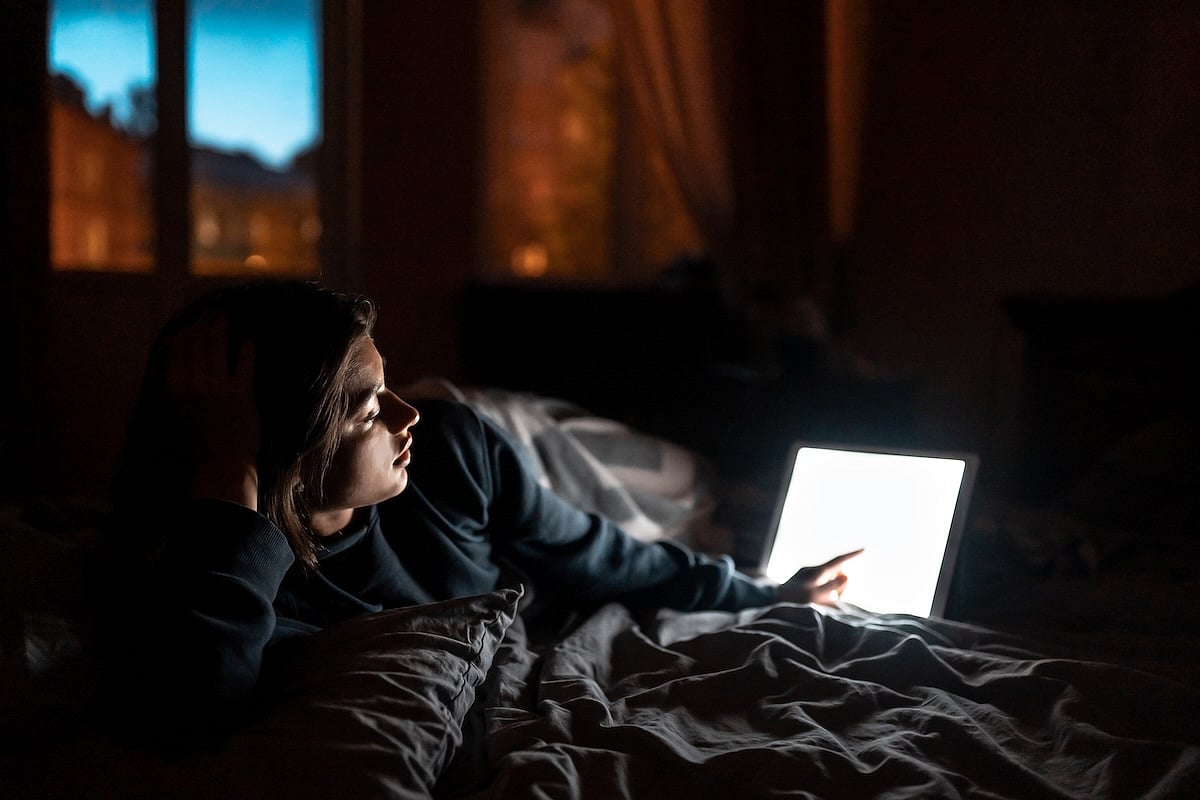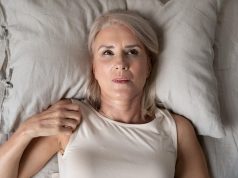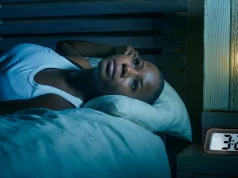Findings do not vary by social media use versus other screen activities
By Lori Solomon HealthDay Reporter
MONDAY, May 5, 2025 (HealthDay News) — Increased screen time in bed is linked to poorer sleep in adults younger than 30 years across screen activity type, according to a study published online March 30 in Frontiers in Psychiatry.
Gunnhild Johnsen Hjetland, Ph.D., from the Norwegian Institute of Public Health in Bergen, and colleagues explored the relationship between screen use in bed and sleep among students. The analysis included 45,202 participants (aged 18 to 28 years) in the Students’ Health and Wellbeing Study of 2022.
The researchers found that a one-hour increase of screen time after going to bed was associated with 59 percent higher odds of having symptoms of insomnia and a reduction in sleep duration of 24 minutes. There was no difference in the associations between screen time and sleep outcomes for social media use versus other activities. Participants who exclusively used social media had lower odds of insomnia and longer sleep duration versus those engaging in other activities or a mix of activities, independent of screen time.
“If you struggle with sleep and suspect that screen time may be a factor, try to reduce screen use in bed, ideally stopping at least 30 to 60 minutes before sleep,” Hjetland said in a statement. “If you do use screens, consider disabling notifications to minimize disruptions during the night.”
One author disclosed being employed by WINK Sleep Pty Ltd. and Sleep Cycle AB.
Copyright © 2025 HealthDay. All rights reserved.








